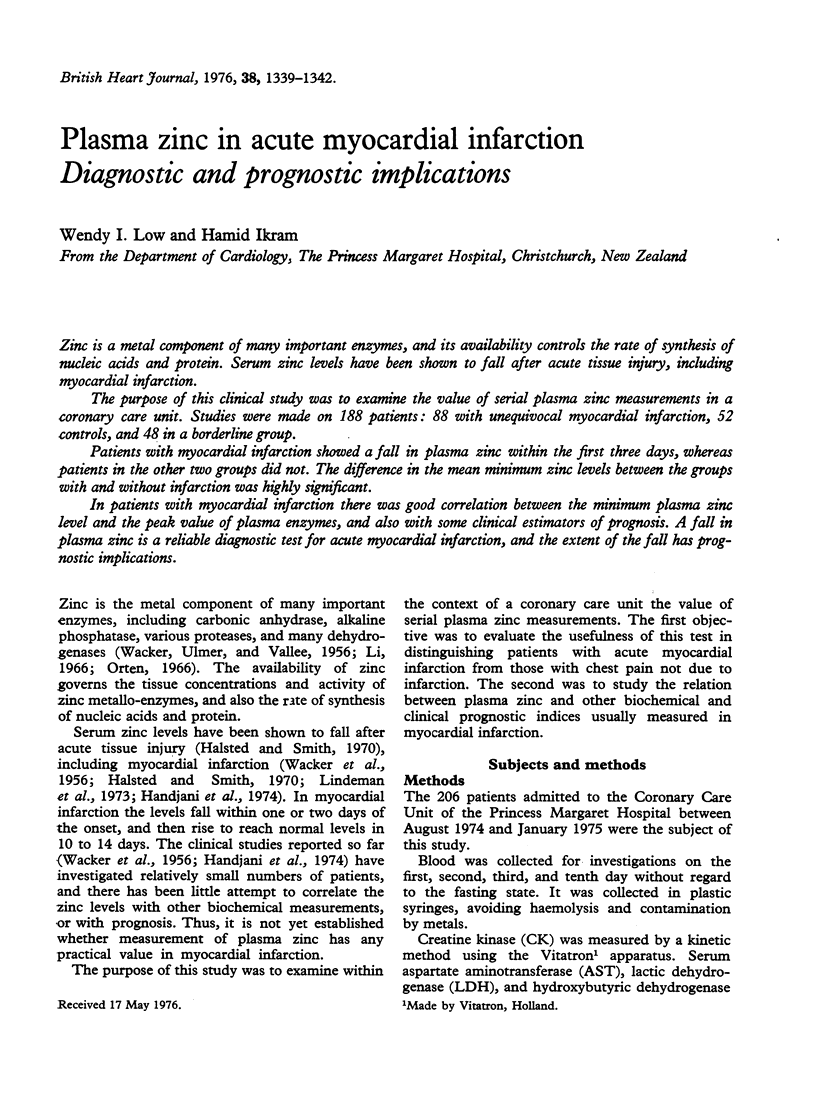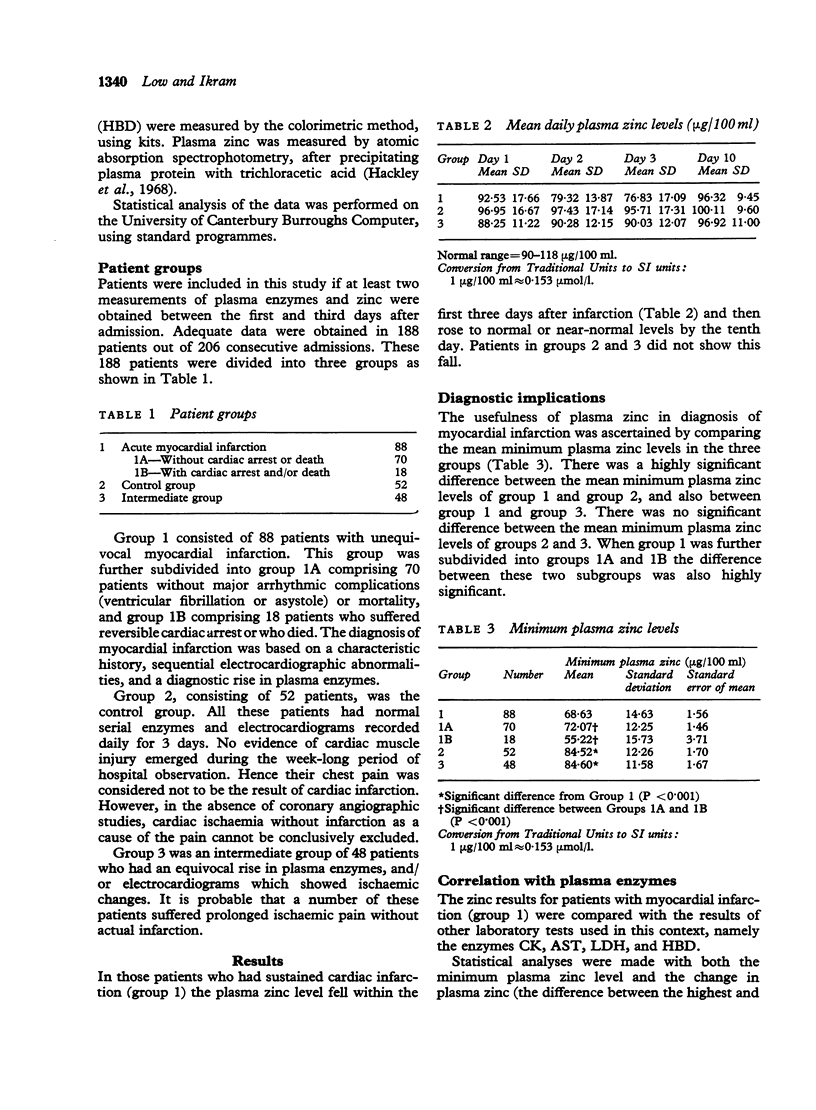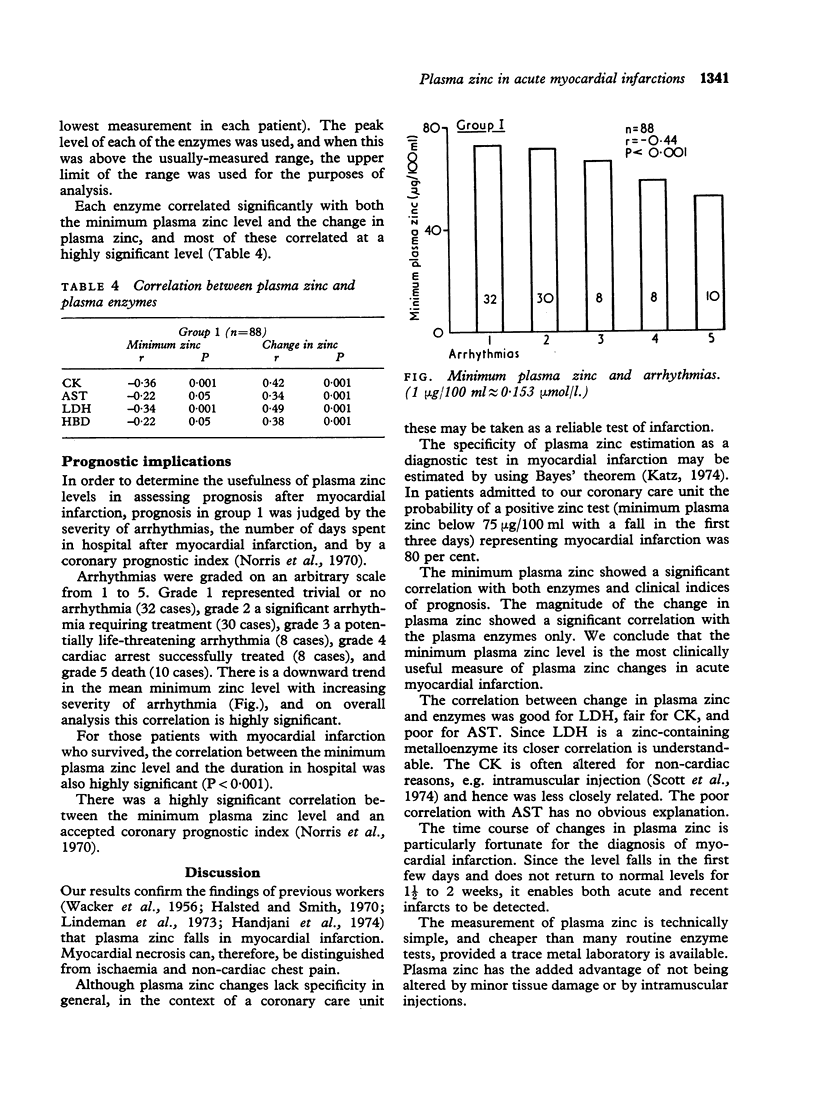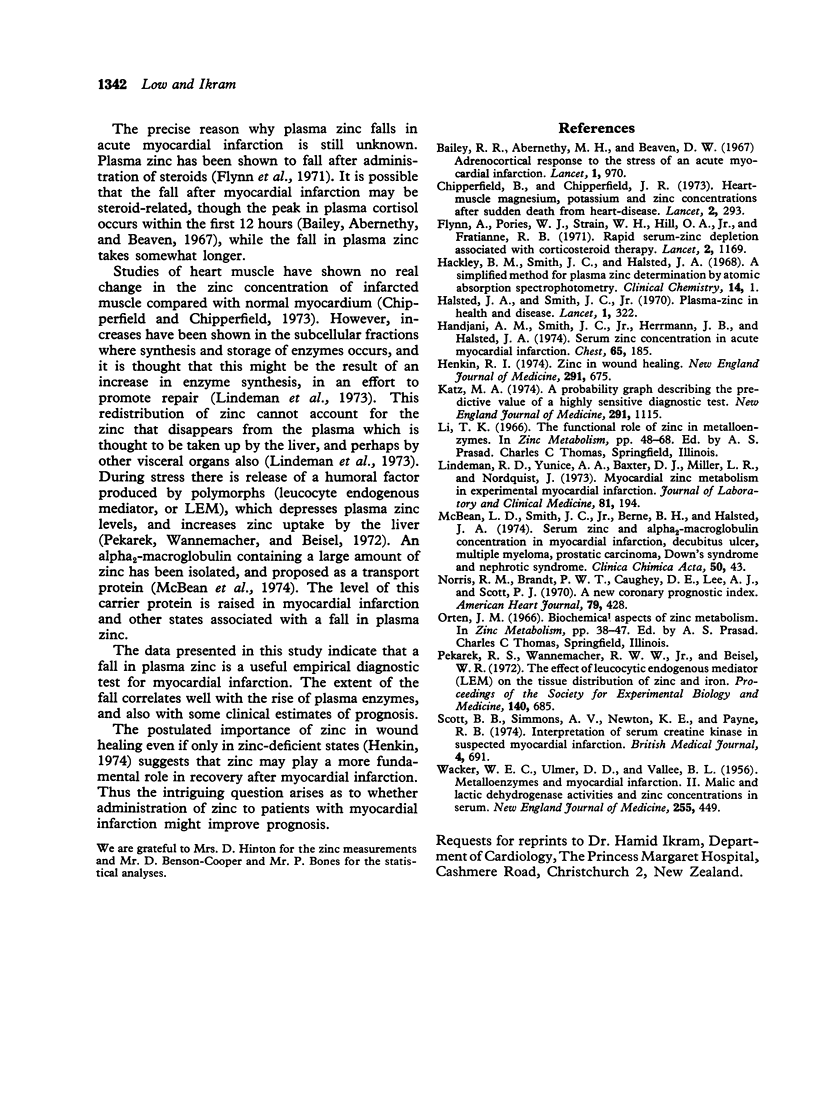Abstract
Zinc is a metal component of many important enzymes, and its availability controls the rate of synthesis of nucleic acids and protein. Serum zinc levels have been shown to fall after acute tissue injury, including myocardial infarction. The purpose of this clinical study was to examine the value of plasma zinc measurements in a coronary care unit. Studies were made in 188 patients: 88 with unequivocal myocardial infarction, 52 controls, and 48 in a borderline group. Patients with myocardial infarction showed a fall in plasma zinc within the first three days, whereas patients in the other two groups did not. The difference in the mean minimum zinc levels between the groups with and without infarction was highly significant. In patients with myocardial infarction there was good correlation between the minimum plasma zinc level and the peal value of plasma enzymes, and also with some clinical estimators of prognosis. A fall in plasma zinc is a reliable diagnostic test for acute myocardial infarction, and the extent of the fall has prognostic implications.
Full text
PDF





